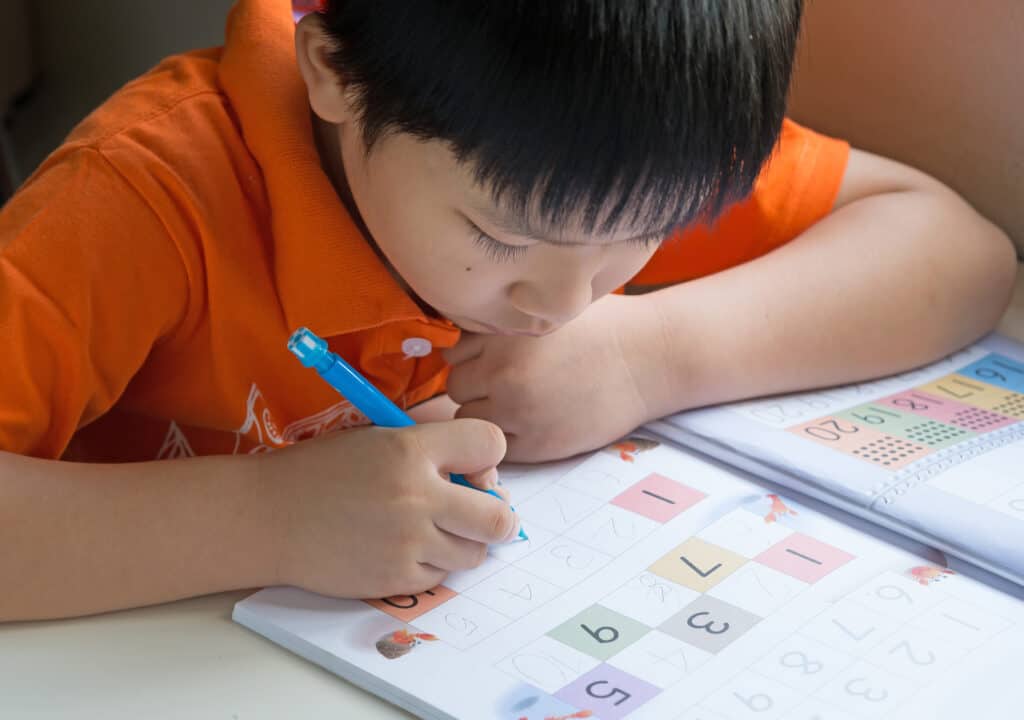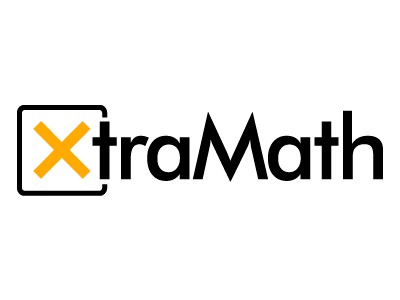Online Math Curriculum at Miacademy
Whether your child wants to travel to outer space, build their own business, or simply handle their future finances, they will need to have a good grasp on math. Mathematics is a global language, a means of communication, and an effective way to build mental discipline and logical reasoning. In addition, a strong foundation in number sense and mathematical operations is important for learning more advanced math principles. Math also helps with problem-solving skills, analytical thinking, and confidence that they’ll use every day!
Choosing The Best Homeschool Math Curriculum
Math tends to be the subject that the most students — and parents — feel uncertain about. If you ask a child why they dislike a specific subject, the answer will often be “because I’m bad at it.” That’s why it’s so essential to choose a homeschool math curriculum that best meets your child’s needs. A positive relationship with math can be built by encouraging a growth mindset, giving time to practice concepts without pressure, and focusing on mastering one concept before moving on to the next.
To build foundational skills and foster confidence, your math curriculum should be flexible enough to fit your student’s needs. Your child should be able to practice concepts until they’ve mastered them while feeling engaged in what they’re learning. The best math curriculum will also be student-centered, teaching the “why” and not just the “how.” This way, your child can see math for what it truly is: a tool we use in our daily lives.
A quality math curriculum will show students how math directly relates to them and how to use it in their everyday life. Encouraging a positive relationship with math is important to help students master foundational skills they’ll use forever.
Please note: The suggested grade levels are intended as guidelines. We encourage you to choose the level that best fits your child’s unique needs and abilities.
Early Elementary Math Curriculum (Grades K-3)
A solid elementary math curriculum fosters a deeper understanding of mathematical principles. Early elementary students should learn to use place value to understand, compare, read, and write numbers. Children should gain an understanding of addition and subtraction strategies and be able to apply the correct operation to solve problems. At Miacademy, our early elementary students stay engaged with our quality, thought-provoking videos covering these topics and more, like time, shapes, graphs, and fractions.
Kindergarten Math Curriculum (Level A)
Math: Level A
Even the youngest students can learn number sense to get an early grasp in mathematical principles. With upbeat songs and exciting videos, our math lessons engage students while teaching basic number sense.
Math: Level A focuses on concrete exploration and real-world applications to make numbers meaningful for young students. Our kindergarten math curriculum creates a strong foundation in skills like counting, sequencing, adding, subtracting, and identifying shapes to set students up for success in their learning journey.
1st Grade Math Curriculum (Level B)
Math Level B
In Math: Level B, students expand their knowledge of number sense by learning more about place value. First graders learn to add with regrouping and to work with larger numbers. They also explore these key concepts through real-world scenarios, like counting money and solving story problems.
2nd Grade Math Curriculum (Level C)
Math: Level C
In Math: Level C, students continue to build their skills with addition and subtracting, especially by solving real-world problems. They also work with three-digit numbers and explore ideas related to fractions and telling time. During this course, students begin to recognize patterns that will help them later with multiplication and division.
3rd Grade Math Curriculum (Level D)
Math: Level D
In Math: Level D, students continue their journey by diving into multiplication and division. They also learn more about using measuring tools, estimating lengths, and comparing fractions. Students will also begin calculating perimeter and applying these foundational concepts to more complex real-world scenarios.

Upper Elementary Math Curriculum (Grades 4-5)
In upper elementary, students learn more about operations and strategies for using them. A strong math curriculum will prepare them for the rigors of middle school by working with multi-digit numbers and using those numbers to explore more advanced problems. Our math curriculum for elementary students prepares them to utilize fractions, decimals, and graphing concepts. We also provide students with plenty of chances to practice core math facts. This is a tool that will help them enormously as they transition to middle school and advance to more challenging math concepts.
4th Grade Math Curriculum (Level E)
Math: Level E
In Math: Level E, students continue to multiply and long divide with increasingly complex word problems. They will expand their geometry knowledge to find the area of squares and rectangles and practice adding and subtracting money with decimal amounts.
5th Grade Math Curriculum (Level F)
Math: Level F
Students in Math: Level F will encounter remainders and fractions with division and multiplication. Students will also learn how to solve for unknown numbers by multiplying and dividing to prepare them for prealgebra in middle school math.
Middle School Math Curriculum (Grades 6-8)
In the middle grades, students deepen their understanding of the core principles of math and how to use them in new situations. The skills learned in elementary school help middle schoolers maintain their confidence as they increase their independence with more complex topics.
Our middle school math curriculum engages students and builds on their existing foundation of mathematical principles while directly preparing them for high school. At Miacademy, we offer Prealgebra 1 and Prealgebra 2, which provide students with an in-depth introduction to algebraic concepts like factoring and linear equations. Our middle school math classes also continue to make math meaningful by focusing on real-world applications.
6th Grade Math Curriculum (Level G)
Math: Level G
After mastering foundational math skills, students at this level are typically ready for more advanced math concepts. With a blend of theory and problem solving, students work with mixed numbers, inequalities, graphing concepts, and angles to prepare them for Prealgebra 1 and 2.
7th Grade Math Curriculum
Prealgebra 1
In the first year of prealgebra, middle schoolers are introduced to foundations of algebraic problem solving, such as linear graphical representations and algebraic expressions. This is an exciting time for students as they begin to lay the foundation for high school mathematics.
8th Grade Math Curriculum
Prealgebra 2
In their final year of prealgebra, students are introduced to topics that will set them up for success in high school algebra. Prealgebra 2 encompasses important skills and concepts such as factoring expressions, solving equations, understanding advanced two-dimensional geometry, and developing linear reasoning.
Miacademy’s Online Math Curriculum for Homeschool
Finding a solid math curriculum that adequately prepares students for the future can be challenging. Our homeschool math curriculum focuses on the student as a whole, using both mastery-based learning and spiral reviews to teach the fundamentals of math in an environment that instills confidence. We believe teaching students the “why” of math is just as important as the “how,” which helps them understand why math is a natural part of our daily lives. Our program allows students to:
- Take tests without the pressure of being timed
- Move at their own pace along their customized learning path
- Benefit from read-aloud options
- Repeat lessons and review concepts as needed
- Learn through engaging videos, quizzes, and printable activities
- Practice with fun math games
- Be part of a safe online community in which they can ask for help amongst their peers
- Build confidence without being compared to other students
- Have fun so they can keep building that positive relationship with math
With Miacademy and MiaPrep, you are able to select lessons based on your child’s current level, so they can work on the content that’s best for them. In addition, we design our online homeschool curriculum with accessibility in mind to fit the unique needs of many different families. Many families use it as their main curriculum, having their child follow each lesson on their learning path throughout the year. Others may decide they want to switch to our curriculum in the middle of the year or even supplement their child’s public school education with it. With the ability to customize your math instruction, right down to each lesson and assignment, your child won’t have to repeat topics that they’ve already mastered to start learning.
In addition, remember that you can always take a brain break with some fun math games! Check out some of our favorite math resources:
If you’re wondering whether Miacademy or MiaPrep would be the best homeschool math curriculum for your family, feel free to reach out to our friendly customer service team! They’ll be happy to help you with any questions you may have.
Updated 02/09/2024





